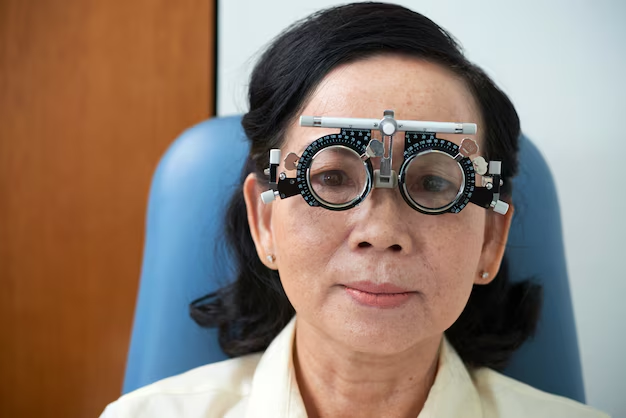Do Cataracts Come Back After Surgery? Here's What You Need to Know
Cataract surgery is one of the most common and successful medical procedures performed today. It holds the promise of restoring vision diminished by cataracts, giving patients renewed clarity and a higher quality of life. But a question that often lingers in the minds of individuals considering or having undergone the procedure is: Can cataracts return after surgery?
In this comprehensive exploration, we will delve into this compelling question, provide context about cataracts and cataract surgery, and address related concerns that might arise in the aftermath. By the end of this piece, you’ll have a well-rounded understanding of what to expect and how to ensure the best outcomes for your eye health.
What Are Cataracts?
Cataracts occur when there's a clouding of the eye's natural lens, which lies behind the iris and the pupil. This condition is common, particularly among older adults, and can lead to symptoms like blurred vision, difficulty seeing at night, and sensitivity to bright lights. Luckily, cataract surgery can effectively address these symptoms.
Causes of Cataracts
Understanding the causes of cataracts can shed light on why they develop and whether they can return. Here are some key factors:
- Aging: The most common cause of cataracts is the natural aging process. As you age, the proteins in the lens of the eye may start to break down, forming a cloud in the lens.
- Genetic Factors: Some individuals have a genetic predisposition that increases their risk of developing cataracts.
- Medical Conditions: Diabetes and other chronic medical conditions can contribute to cataract formation.
- Environmental Influences: Frequent exposure to UV rays, smoking, and heavy alcohol consumption are known to elevate the risk.
The Cataract Surgery Process
Cataract surgery involves removing the cloudy lens and replacing it with a clear artificial lens, known as an intraocular lens (IOL). It's a procedure that has been refined over decades and is known for its safety and effectiveness.
How Surgery Works
Here’s a succinct breakdown of the procedure:
- Preparation: The procedure involves using local anesthesia to numb the eye area, making the process comfortable for the patient.
- Lens Removal: The surgeon makes a small incision in the eye to remove the affected lens.
- IOL Implant: An artificial lens is inserted to replace the removed natural lens.
- Recovery: Recovery time is relatively swift, allowing patients to return to normal activities with improved vision.
Can Cataracts Return?
The direct answer is no—once the natural lens is removed during cataract surgery, cataracts cannot “regrow” on the artificial lens. However, it’s important to consider Posterior Capsule Opacification (PCO), sometimes misleadingly referred to as a "secondary cataract."
Understanding PCO
PCO occurs when the membrane holding the IOL in position becomes cloudy, potentially impairing vision similar to the original cataract. Key points include:
- Prevalence: PCO can develop in a significant number of patients post-surgery, making it the most common postoperative complication.
- Symptoms: Similar to cataracts, symptoms include blurred vision and glare.
- Treatment: Fortunately, PCO can be treated quickly and painlessly with a procedure called YAG laser capsulotomy.
YAG Laser Capsulotomy
This procedure involves using a laser to create an opening in the cloudy membrane, restoring clear vision. It's an outpatient procedure, allowing patients to resume normal activities shortly thereafter.
Ensuring Optimal Outcomes and Vision Health
While the risk of PCO remains, understanding steps to promote eye health post-surgery can ensure you enjoy the best possible vision outcomes.
Tips for Healthy Vision
- Regular Check-ups: Stay proactive with your eye health by attending regular eye examinations.
- Protective Eyewear: Protect your eyes from harmful UV rays with sunglasses.
- Healthy Lifestyle: A balanced diet rich in green leafy vegetables, omega-3 fatty acids, and antioxidants supports overall eye health.
- Avoid Smoking: Smoking can exacerbate eye health problems.
Frequently Asked Questions
How Long Does an IOL Last?
An IOL is designed to be a permanent solution and can last a lifetime. They're made of materials suitable for long-term implantation in the human body.
Can Cataract Surgery Be Redone?
While rare, there are instances where surgical refinement or additional treatment may be necessary due to complications, but repeat surgeries specifically for cataract are uncommon.
What Are the Risks of Cataract Surgery?
Like any medical procedure, cataract surgery comes with potential risks, including infection, bleeding, and changes in eye pressure. However, these are relatively rare, and the benefits often outweigh the risks.
Concluding Insights
Cataract surgery is a highly effective, safe procedure with profound benefits for those suffering who are with vision impairment due to cataracts. While cataracts themselves do not return, understanding the potential for PCO and taking steps for eye health can help ensure long-lasting, clear vision post-surgery.
Quick Summary:
- 😎 Cataracts can't regrow: Once the natural lens is removed, it’s gone for good.
- 🦠 Watch for PCO: This is a common, treatable post-surgery condition.
- 💡 YAG laser capsulotomy: Quick fix for PCO restoring clear vision.
- 🌞 Eye protection: Sunglasses and avoiding smoking promote lasting eye health.
- 🏥 Routine check-ups: Regular eye exams catch potential issues early.
By keeping these insights in mind, individuals undergoing cataract surgery can look forward to a brighter, clearer future.

Related Articles
- Are Cataracts Curable
- Are Cataracts Genetic
- Are Cataracts Hereditary
- Are Cataracts Nuclear Sclerosis
- Are Cataracts Painful
- Are Ivizia Eye Drops Okay After Cataract Surgery
- Are You Awake During Cataract Surgery
- Are You Awake For Cataract Surgery
- Are You Put To Sleep For Cataract Surgery
- Are You Sedated For Cataract Surgery
